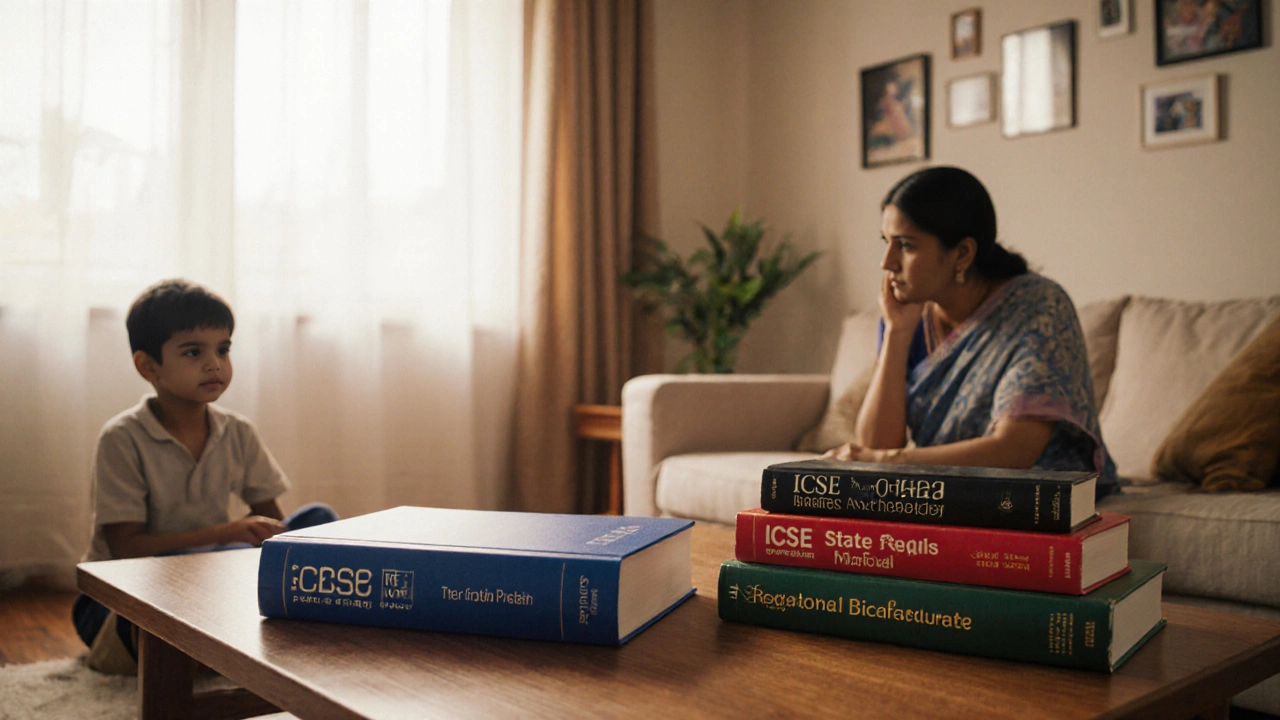School Curriculum Comparison – Find the Right Path for Your Child
When reviewing school curriculum comparison, the process of evaluating different educational programmes to see which fits a learner’s goals and style. Also known as curriculum analysis, it helps families make informed decisions. Key players in India include the CBSE curriculum, a nationally standardized programme focused on core subjects and competitive exam prep, often called the CBSE board. On the international side, the International Baccalaureate (IB), an inquiry‑based framework that emphasizes critical thinking and global awareness (aka IB programme) offers a contrasting approach. Lastly, the State Board syllabus, regional curricula that reflect local language, culture, and board examinations (sometimes called State Board) rounds out the major options. Understanding how these systems differ is the first step toward a smart choice.
Why does school curriculum comparison matter? Because each programme shapes not only what students learn but also how they are assessed and what doors open later. For example, the CBSE curriculum emphasizes standardized testing, aligning closely with JEE and NEET preparation, while the IB model prioritizes project work and interdisciplinary projects that suit university admissions abroad. State Board syllabi often balance regional relevance with national standards, offering flexibility for students who prefer a localized learning environment. These distinctions create a clear semantic relationship: the curriculum chosen influences assessment style, future academic pathways, and skill development.
Key Comparison Factors
When you sit down to compare curricula, focus on three core attributes. First, content breadth: does the programme cover STEM depth, humanities breadth, or a mix? CBSE provides a strong foundation in Physics, Chemistry, and Mathematics, while IB offers a wider range of subjects, including Theory of Knowledge and Creativity, Activity, Service (CAS) components. Second, assessment methodology: CBSE relies on year‑end board exams, IB uses internal assessments and external exams throughout the year, and State Boards often blend periodic tests with a final exam. Third, future pathways: CBSE aligns with Indian competitive exams, IB eases entry to overseas universities, and State Boards support regional higher‑education institutions. By mapping these attributes, you create semantic triples like "School curriculum comparison includes content breadth," "Curriculum assessment methodology influences student stress levels," and "Future pathways depend on curriculum choice."
Practical steps to conduct a thorough comparison start with gathering official syllabus documents, then matching them against your child’s learning style. Look for the depth of concepts in each subject – does the CBSE math syllabus dive into calculus early, while the IB mathematics focuses on modeling and real‑world applications? Check the weight of project work versus rote memorization; IB’s extended essay is a big time commitment, whereas State Board subjects may focus more on textbook exercises. Finally, consider teacher expertise and resource availability. Schools offering CBSE often have well‑trained faculty for competitive exam coaching, while IB schools may attract teachers with international experience.
Beyond the academic lens, think about extracurricular integration. IB’s CAS requirement pushes students toward community service, leadership, and creativity – a factor that can shape college essays and scholarships. CBSE‑affiliated schools may provide robust sports and arts programs but usually treat them as optional. State Board schools sometimes embed cultural festivals into the curriculum, giving students a sense of local identity. These cultural dimensions add another semantic layer: "Curriculum design influences extracurricular opportunities," and "Cultural relevance impacts student engagement."
Armed with this framework, you’ll be able to evaluate each syllabus on concrete criteria rather than vague impressions. The next section of this page lists articles that dive deeper into specific topics – from how CBSE prepares students for JEE, to why the IB’s assessment style suits global university admissions, and what makes State Board syllabi uniquely adaptable. Browse the collection below to get actionable tips, real‑world examples, and expert advice that will help you choose the curriculum that aligns best with your child’s aspirations and learning preferences.
Choosing the Right School Syllabus for Your Child: CBSE, ICSE, State or International?
Explore CBSE, ICSE, State and International curricula to find the best syllabus for your child. Compare focus, assessments, costs, and future goals.
read more